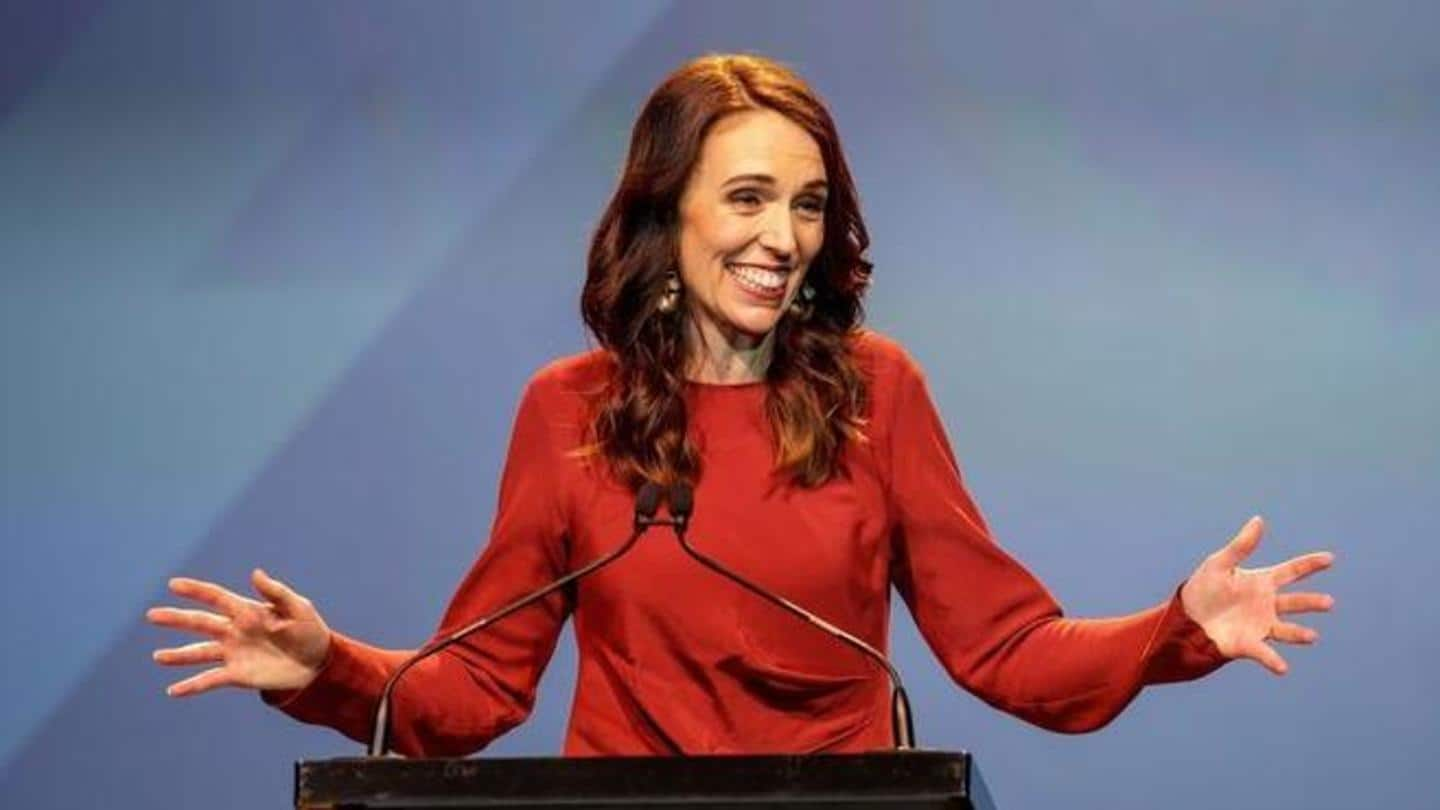
Jacinda Ardern's Labour Party wins New Zealand election by landslide
What's the story
New Zealand Prime Minister Jacinda Ardern is all set to return for a second term as her Labour Party secured a landslide victory in the country's general elections on Saturday.
While the vote counting has not been finalized yet, the center-left Labour Party's massive lead was enough for Opposition leader Judith Collins to concede after phoning Ardern.
Here are more details.
Votes
With 2/3rds votes counted, Labour Party had secured 49.2% votes
According to Agence France-Presse, with two-thirds of the vote counted, the Labour Party had secured 49.2% of the votes and was forecasted to take roughly 64 seats in the 120-seat Parliament.
Notably, since 1996, when New Zealand adopted a proportional voting system, no leader has achieved an absolute majority in the country.
Ardern's performance also beat pre-election opinion polls.
Opposition
An outstanding result for Labour Party: Opposition
Meanwhile, Collins' conservative National Party was expected to take around 35 seats, marking the party's worst performance in nearly 20 years.
Addressing a crowd of cheering supporters in Auckland, Collins said, "Congratulations on your result because it is, I believe, an outstanding result for the Labour Party. It has been a tough campaign."
Collins had only taken over the National Party in July.
Popularity
Ardern rode wave of support dubbed 'Jacindamania'
Ardern, a charismatic leader, has led the country through the infamous Christchurch terror attack in March 2019 and a volcanic eruption in December.
The 40-year-old leader—who also made it to the cover of Vogue and TIME—has sparked a wave of support called "Jacindamania".
Yet, in February 2020, the polls predicted she had fallen behind the Opposition for failing to deliver on some key promises.
Quote
Ardern yet to fulfill earlier promises
"She made utopian promises, to 'lift countless children out of poverty' and to build 1,00,000 homes in 10 years," political commentator Ben Thomas told Al Jazeera, "10,000 should've been built by now and we've seen less than a few hundred."
"There were numerous pledges to invest in transport and infrastructure," Thomas said, "despite the many press releases I've seen no shovel hit the ground."
Coronavirus
Coronavirus pandemic turned the tide
However, Ardern's handling of the coronavirus pandemic turned the tide.
"You could see it as either the PM has benefitted from crises, or New Zealand has benefitted from the PM," Thomas said.
NZ has reported fewer than 2,000 cases and 25 deaths.
Although a resurgence in August impacted her popularity, the latest opinion polls showed her polling at 46% against National Party's 31%.
Quote
Voters focused on 'freedoms to meet friends, not wear masks'
Political analyst Geoffrey Miller said while the National Party focused on differences in policy, voters are interested in the "here and now."
Miller said, "People look around at freedoms such as meeting friends for coffee and not having to wear a mask. People are feeling grateful to be cut off from the rest of the world."
National Party
String of resignations severely impacted National Party
The National Party has also had its share of troubles. Although the party maintained a lead in polls in February, its image took a severe hit with the changing leadership and string of resignations.
19 of its original 56 MPs decided against standing for the 2020 election.
Thomas said the party leadership was almost "thrust" onto Collins as a last resort.
Information
Ardern viewed as anti-thesis of Trump
Another factor that aided the Labour Party may have been the examples set by the conservative leadership in the United States (Donald Trump) and the United Kingdom (Boris Johnson), Thomas said. "There's a sense of relief that we have dodged a bullet thanks to Jacinda."
Challenges
Challenges ahead: Rising unemployment, coronavirus, etc.
There are 15 parties contesting in the election and it is likely that the Labour Party will have to govern in a coalition, even if they win.
Senior economist Brad Olsen also pointed out that the rising unemployment as the pandemic continues to rage worldwide, and the question of reopening borders will remain pertinent.
The need for social housing is yet to be addressed.